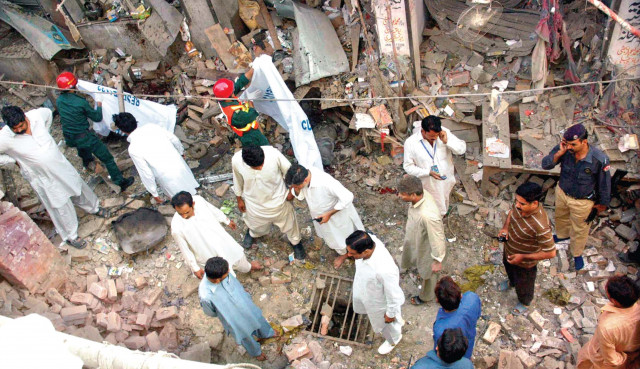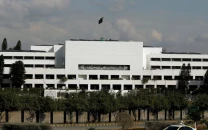Spirituality under attack
Obscurantist militants want to forcibly impose their own rigid brand of Islam

The Friday’s suicide attack on the shrine of Sufi saint Baba Farid Gunj Shakar in Pakpattan is the latest in a series of such attacks.
In March last year, extremists had bombed the shrine of the legendary Pashto Sufi poet Rehman Baba. The Data Darbar in Lahore and Abdullah Shah Ghazi’s Mazar in Karachi – the two most revered shrines – were also among the shrines targeted this year.
In a related incident, unknown men vandalised the graves of the Afghan royal family in the Durrani graveyard, near Wazir Bagh, in Peshawar in June this year. They took away tombstones from the graves of Sardar Muhammad Ayub Khan, the conqueror of Maiwand, his mother and queen of Afghanistan and other relatives inside the Sheikh Habib Baba shrine in the Durrani graveyard. The vandalised graves still await attention of the provincial authorities.
Interestingly, the incident also went unnoticed in the mainstream media.
The graveyard is located close to the bombed out shrine of Rehman Baba where reconstruction work is in progress.
“Unknown men took away the marble tombstones,” an attendant at the Sheikh Habib Baba shrine told The Express Tribune requesting anonymity. He added that the Yakatoot police had taken the pieces of tombstones into their custody but had not showed up ever since.
Dr Adil Zareef, a member of the Sarhad Conservation Network (SCN), called it a “loathsome act.” He urged the authorities to form a committee of experts to assess the damage done to the graves and restore them.
Zareef said the provincial government in Sindh and Punjab have enacted laws for protecting cultural heritage, while the Khyber-Pakhtunkhwa government is yet to come up with a similar legislation. He warned that the cultural heritage in the province would vanish, if timely action was not taken by the government.
Sardar Ayub Khan, the son of Afghan king Amir Sher Ali Khan, vanquished British forces at Maiwand in 1880. The British troops were led by Brigadier-General George Burrows during the Second Anglo-Afghan War.
Historian Peter Hopkirk in his book, ‘The Great Game’ refers to the battle of Maiwand as “the worst defeat suffered by the British in Asia”.
Maiwand is a small village some 40 kilometres west of the Afghan province of Kandahar.
In 1888, Sardar Ayub left Iran and came to British India, where he died in 1914 and was buried in the Durrani graveyard of Peshawar.
Published in The Express Tribune, October 28th, 2010.



















COMMENTS
Comments are moderated and generally will be posted if they are on-topic and not abusive.
For more information, please see our Comments FAQ